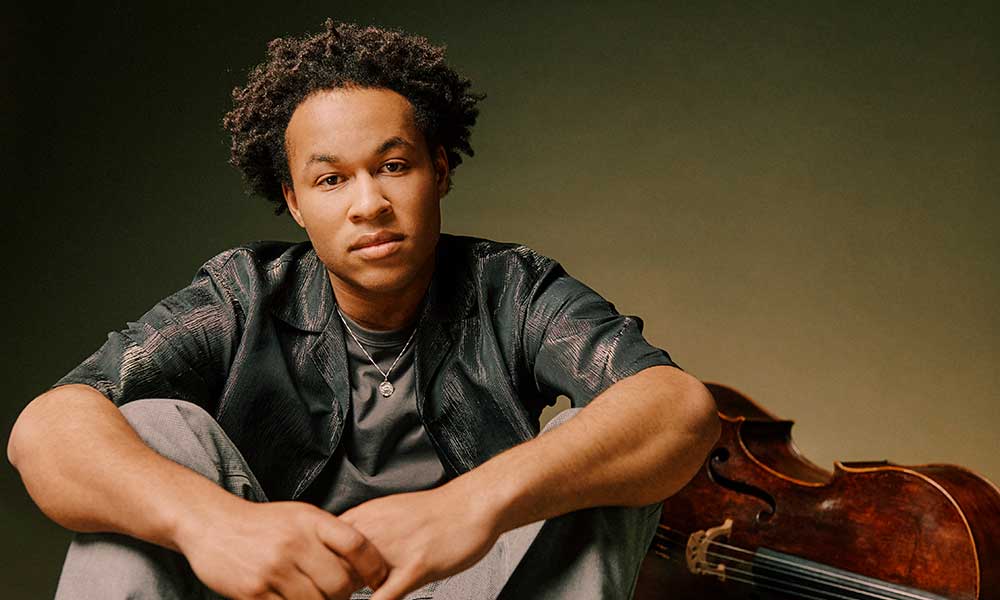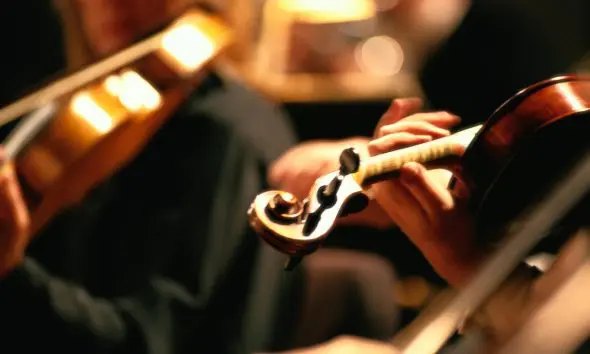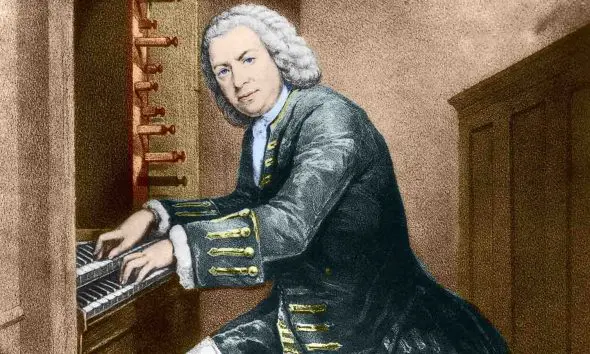Sheku Kanneh-Mason On His Inspirations Behind New Album ‘Song’
Sheku Kanneh-Mason spoke to us about the inspirations, from Bach to Bacharach and beyond, behind his new album ‘Song’.

When lockdown struck in 2020, cellist Sheku Kanneh-Mason and his six siblings, Britain’s favourite musical family, found their meteoric careers abruptly grounded. Confined to their home in Nottingham, they were resourceful enough to give a long series of joint concerts online, attracting a devoted following. Still, it wasn’t quite the same, for them or for us. Now, equipped with an MBE, a beautiful Gofriller cello of 1700 and a schedule including the Last Night of the Proms, Sheku is happy to be back on stage.
“I missed performing quite a lot,” he says. “It was a weird feeling. Now it’s very much back to travelling as much as ever and it’s really so enjoyable.” He has a dizzying season ahead, including a US tour with the CBSO, concerts in Lucerne and Paris and a major tour of Australia.
“It’s a portrait of what I enjoy exploring”
It is not only the concert hall in which Sheku Kanneh-Mason is busy, but also the recording studio – or, for his latest recording, Song, numerous different ones, as a multi-genre album with a wide variety of collaborators needed a multifarious approach to the microphones. The result displays him as a 360-degree artist, the eloquent sound of his cello providing the unifying factor. “It’s a portrait of what I enjoy exploring, playing, listening to and arranging,” Sheku says, “putting the cello in different contexts, and me in different contexts as well.”
Roles as performer, arranger, improviser and composer
These contexts for the cellist include roles as classical performer, arranger, improviser and composer, playing in jazz and folk styles, making the first recording of a contemporary work written especially for him and playing a pop song he has co-written with Zak Abel.
He collaborates throughout with an eclectic group of friends and colleagues, among them the South African soprano Pumeza Matshikiza and an ensemble of fellow cellists in which his two main teachers, Ben Davies and Hannah Roberts, both play. Sheku Kanneh-Mason’s sister, pianist Isata, is his duo partner for a Mendelssohn Song Without Words and Beethoven’s Variations on ‘Ein Mädchen oder Weibchen’.
Beethoven was an expert improviser. Today, however, improvisation is a skill with which not every classical musician feels comfortable. Sheku Kanneh-Mason is an exception: “To me it feels fairly natural, because it’s something I have done since I was very young,” he says. “At the start of my practice, as part of my warmup I often do a few minutes of improvising, exploring the instrument in a very free way. The more I do that, the better I feel about my relationship to the instrument.
“On this album, I was working with Harry Baker, who is mostly a jazz pianist. We met at the Junior Royal Academy of Music, so I’ve known him for a long time and we’ve done concerts together, including improvisation. It’s been a fascinating process.” Among their joint tracks is Lullaby for Kamila: “We took the tune and then improvised freely around the structure, melody and harmony. We just did complete takes and I picked our favourite one.”
Inspirations from Bach to Bacharach and beyond
Sheku’s arrangements for the album include Bach’s Komm, süßer Tod and Nun komm, der Heiden Heiland and Villa-Lobos’s Prelúdio (Modinha). “I love the sound of massed cellos! The idea came from things that I’d been listening to and could imagine playing and sounding good in this setting. With Bach, because the harmony in the resonance is such a big part of the beauty of the music, it works well with cello ensemble. One of the Bach pieces is originally for keyboard and that was tricky: I was playing the top part, which is often very high, and you want to capture the purity that you would get from a keyboard. But I think it works.”
The album opens with Sheku’s arrangements of two folksongs for just one solo cello: the Welsh song Myfanwy, which his Welsh grandmother used to sing to him when he was a small child. He has also reset Burt Bacharach’s I Say A Little Prayer as a cello solo, playing pizzicato throughout.
Five Preludes for Solo Cello was written for Sheku
Central to the programme are the Five Preludes for Solo Cello by Edmund Finnis, written for Sheku Kanneh-Mason as part of the Royal Academy of Music’s bicentenary celebrations. “At the Academy we are commissioning 200 pieces to mark 200 years,” Sheku says, “asking different composers to write works for the students to perform. Ed was paired with me and came up with these five preludes. He has a deep understanding of the cello and of how to communicate through the instrument. The cello was his own instrument, which helps, but his understanding of subtlety and colour is very true to what I focus on as well. I think I’ll have the chance to perform them many times.”
Sheku Kanneh-Mason co-wrote Same Boat with Zak Abel
Sheku Kanneh-Mason is venturing into composing too: he co-wrote the song Same Boat with Zak Abel. “He’s a good friend and often comes round,” he says. “We listen to all kinds of music and jam together, so it felt natural to write a song as well.” It’s a song with a difference: “I wanted all the instrumental elements to come from cello sounds: all of the percussion, bass and harmony, apart from the handclaps, are from the cello. Hopefully, it feels very natural and organic. Zak has a very soulful and beautiful voice, so I wanted that recording to feel intimate and not be over-produced.”
At the other end of the spectrum, there is the ‘Louange à l’éternité de Jesus’ from Messiaen’s Quartet for the End of Time. While a captive in a prisoner-of-war camp during World War II, Messiaen created the quartet to perform together with three fellow musician inmates. This deeply meditative movement for cello and piano presents unique challenges. “You have almost to slow down your heart rate to remain focused and in control,” Sheku says, “for instance when you have crescendos on very long notes. The extremely slow tempo is really hard when it comes to bow control, particularly in performance, where naturally your heartbeats are a little bit faster.”
Watch Sheku performing at the Last Night of the Proms
Speaking of adrenalin, the release of Sheku Kanneh-Mason’s new album Song coincides with his performance, of Samuel Coleridge-Taylor’s setting of ‘Deep River’, at the Last Night of the Proms 2022 on Saturday 10 September. The Last Night is habitually broadcast all over the world to an audience of many millions – but it turns out that Sheku has little idea what lies in store. “I’ve never been to one. I’ve never even watched it on TV!” he says. Assuredly he is in for an experience like no other.
Sheku Kanneh-Mason’s new album Song will be released on 9 September 2022 and can be pre-ordered here.




